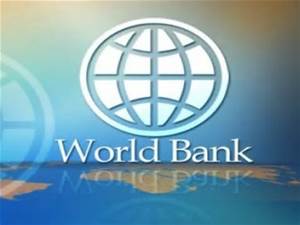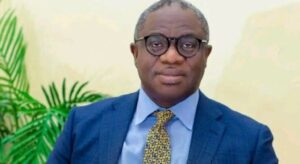Economic Reforms: Nigerians Under Poverty Line Rise To 104m — World Bank

A World Bank report has indicated that Nigeria’s poverty level has taken a notch higher, at the backdrop of the recent economic and fiscal reforms.
The key reforms include the removal of petrol subsidy and the foreign exchange market rate restructuring.
The bank, however, commended the Federal Government for what it considered ‘bold reforms’ necessary to rescue Nigeria from fiscal cliff, describing the current pains as temporary.
But it also said the policies have created intense pressures on cost of living, which have pushed more Nigerians into hardship, with 104 million now living below the poverty line.
READ ALSO: ‘Rivers Crisis May Spread Across Nigeria’ – Bode George
The World Bank report also indicated that the number of poor people in Nigeria had grown from 95 million in 2021 to 100 million in 2022, while the Nigerian Bureau of Statistics, NBS, indicated that the figure was 82.9 million in 2019 and 85.2 million in 2020.
In its World Bank Nigeria Development Update, NDP, entitled ‘Turning the Corner: Time to Move From Reforms to Results’, the bank stresses the need to continue with the reform momentum to complete the reforms and to address the costs of the reforms.
It further stated: ‘‘Inflation remains at record high levels for Nigeria, 27.3 per cent Year-on-Year, YoY, in October 2023, partly driven by the one-off price impacts of the removal of the gasoline subsidy.
‘‘The impact of this is especially hard on poor and vulnerable citizens. The FX market has remained volatile and in a period of continuing adjustment to the new policy approach, with significant fluctuations in the exchange rate in both the official and the parallel markets. Revenue gains from the FX reform are visible.
‘‘However, there is a need for more clarity on oil revenues, especially the financial gains of Nigeria National Petroleum Corporation Limited, NNPCL, from the subsidy removal, the subsidy arrears that are still being deducted, and the impact of this on Federation revenues.”
In his appraisal of the country’s reforms, Shubham Chaudhuri, World Bank Country Director for Nigeria, stated: “The petrol subsidy and FX management reforms are critical steps in the right direction towards improving Nigeria’s economic outlook. Now is the time to truly turn the corner by ensuring coordinated fiscal and monetary policy actions in the short to medium term.
“Continued reform implementation can ensure that Nigeria benefits from the difficult adjustments underway. This includes ensuring that improved oil revenues following the sharply increased PMS price accrue to the Federation.
‘‘In the medium-term, the economy will then begin to benefit from increasing fiscal space for development spending, including on power and transport infrastructure, as well as on human capital.”
He further said that between N300 billion –N400 billion was expended on fuel subsidy monthly, before the subsidy removal and that the expectation was that the NNPCL should have been paying such amount to the Federation Account, but which has not been the case.
World Bank’s recommendations
The latest NDU report recommended specific actions required to further sustain and achieve the full benefits of reforms already embarked on by the Government.
These include: controlling inflation and improving the stability of the FX market; achieving fiscal consolidation by sustaining savings from the PMS subsidy reform and improving non-oil revenues; addressing structural barriers to growth, such as removing trade barriers.
It stated further: “With the continued implementation of macroeconomic stabilization reforms, Nigeria’s economy is expected to grow at an average annual rate of 3.5 per cent in 2023-2026, or 0.5 per centage points higher than in a scenario where the reforms had not been implemented.
Alex Sienaert, World Bank Lead Economist for Nigeria and co-author of the Report, also stated: ‘‘In 2024, Nigeria has an opportunity to turn the corner to a more stable and predictable macroeconomic environment, and easier access to foreign exchange (FX) and imported inputs, which is critical to creating new jobs and lifting people out of poverty”.
The NDU report indicated that Nigeria was not yet out of the woods but on the path to full recovery, as a result of the various policies being implemented by both fiscal and monetary authorities.
The World Bank called on the Nigerian National Petroleum Company Limited (NNPCL) to make public its Statement of Accounts and transparently disclose its revenue inflows.
The report read in part, “The removal of the subsidy was announced on May 29 and pump prices were adjusted on June1.
“This results in expected fiscal savings of around N2 trillion in 2023 or 0.9 per cent of GDP.
“Between 2023 and 2025, the expected gains are over N11 trillion, against a scenario in which the subsidy had continued’’.






